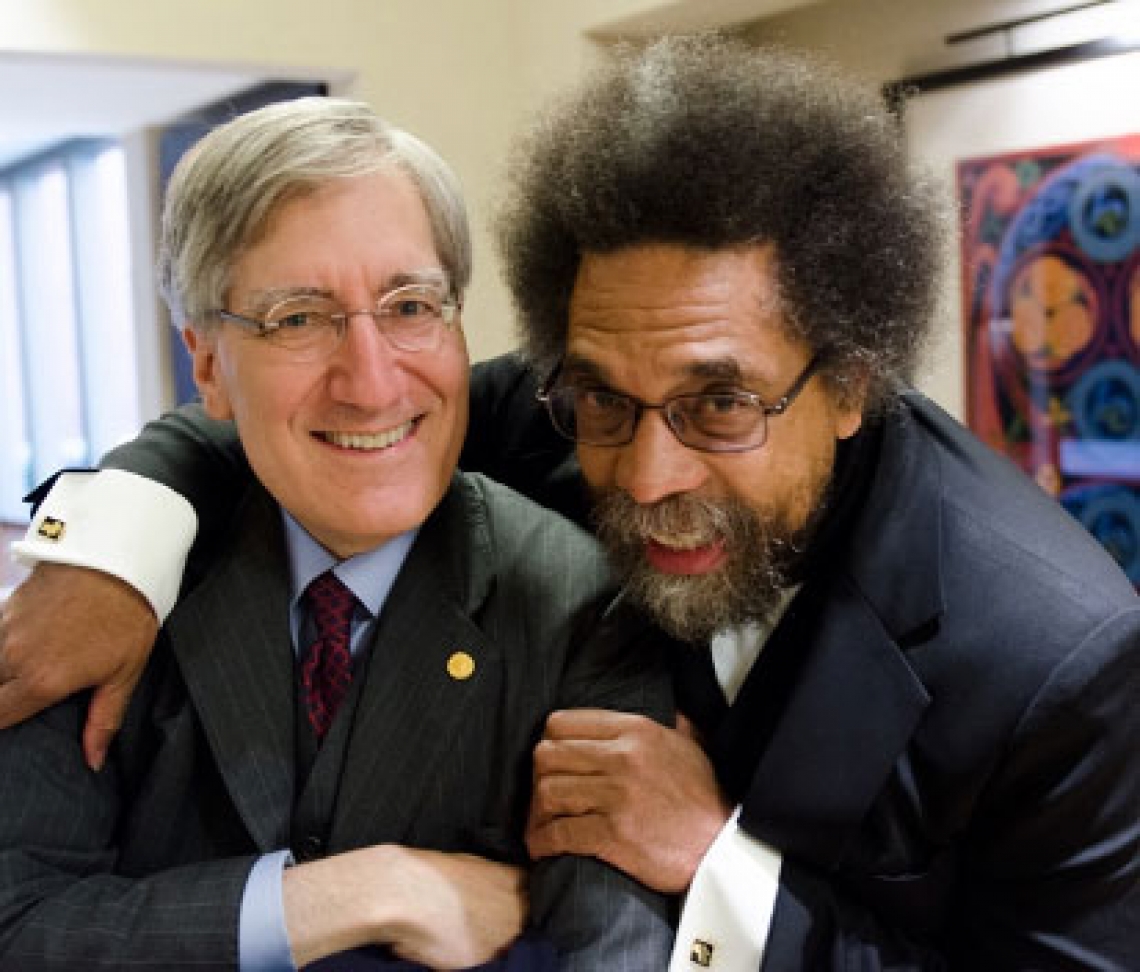Dr. Cornel West and Dr. Robert George Equip the Poly Community with the Tools to Combat Groupthink and Engage in Productive Discourse
This evening, Poly students, Jason Mayo, Megan Ha and Opal Hetherington impressively facilitated a hugely impactful conversation with Drs. Cornel West and Robert George. In our current sociopolitical climate, our Poly community will certainly benefit from what we collectively learned tonight. Despite their diverging ideological and political viewpoints, the two intellects’ relationship “extends beyond friendship and into brotherhood.” "Love is not reducible to politics or public policy," shared Dr. George at the beginning of the program. To me, this sentiment was consistently reinforced throughout their time with us. Their brotherhood, built on the foundation of truth-seeking, and seemingly epitomizing true friendship, served as proof of Dr. George's statement.
When asked about discourse, Dr. George defined civility for the audience- outlining the importance of listening from a place of wanting to learn; acknowledging the possibility that "I could learn from this person." He argued that out of respect for each other, our education, and our democracy, we owe it to our community to challenge and grow from each other using civility as our tool.
In response to a question about our democracy, Dr. West identified our democracy as one that is in shambles. Much of our polarization comes from a place of arrogance, he affirmed. We do not act from a place of intellectual humility or realize our own infallibility which makes us incapable of engaging in the business of intellectual currency. In order for one to engage in this, they must approach discourse from a place of truth-seeking, a place of wanting to be challenged as a mechanism to learn. Dr. West highlighted each of these points with his partner Dr. George throughout the night in an overwhelmingly articulate and open-hearted manner. I look forward to working alongside my peers to confront the mammoth issue that is groupthink in our school- using the words of Dr. Cornel West and Dr. Robert George as a guide.

Comments
Post a Comment